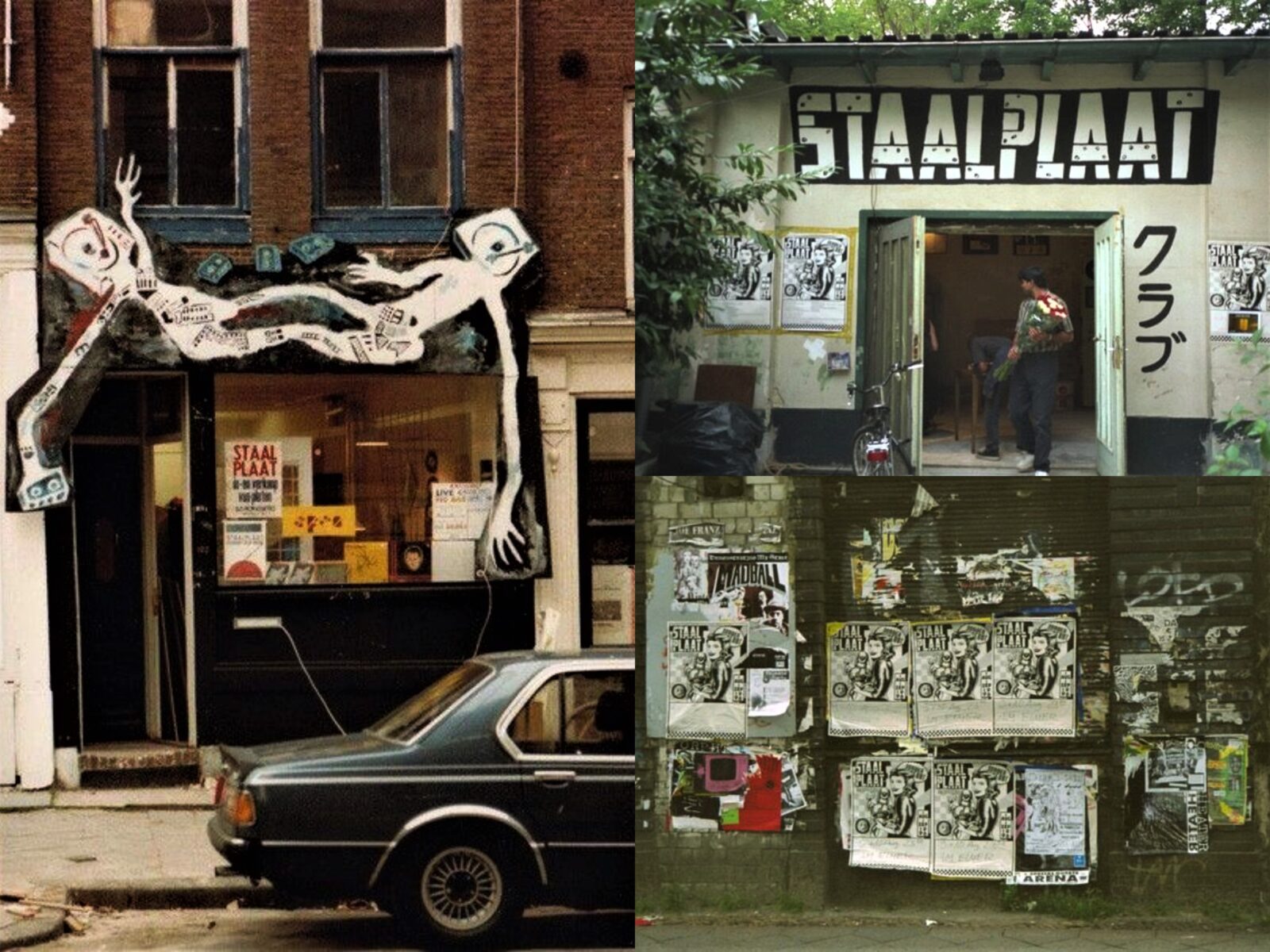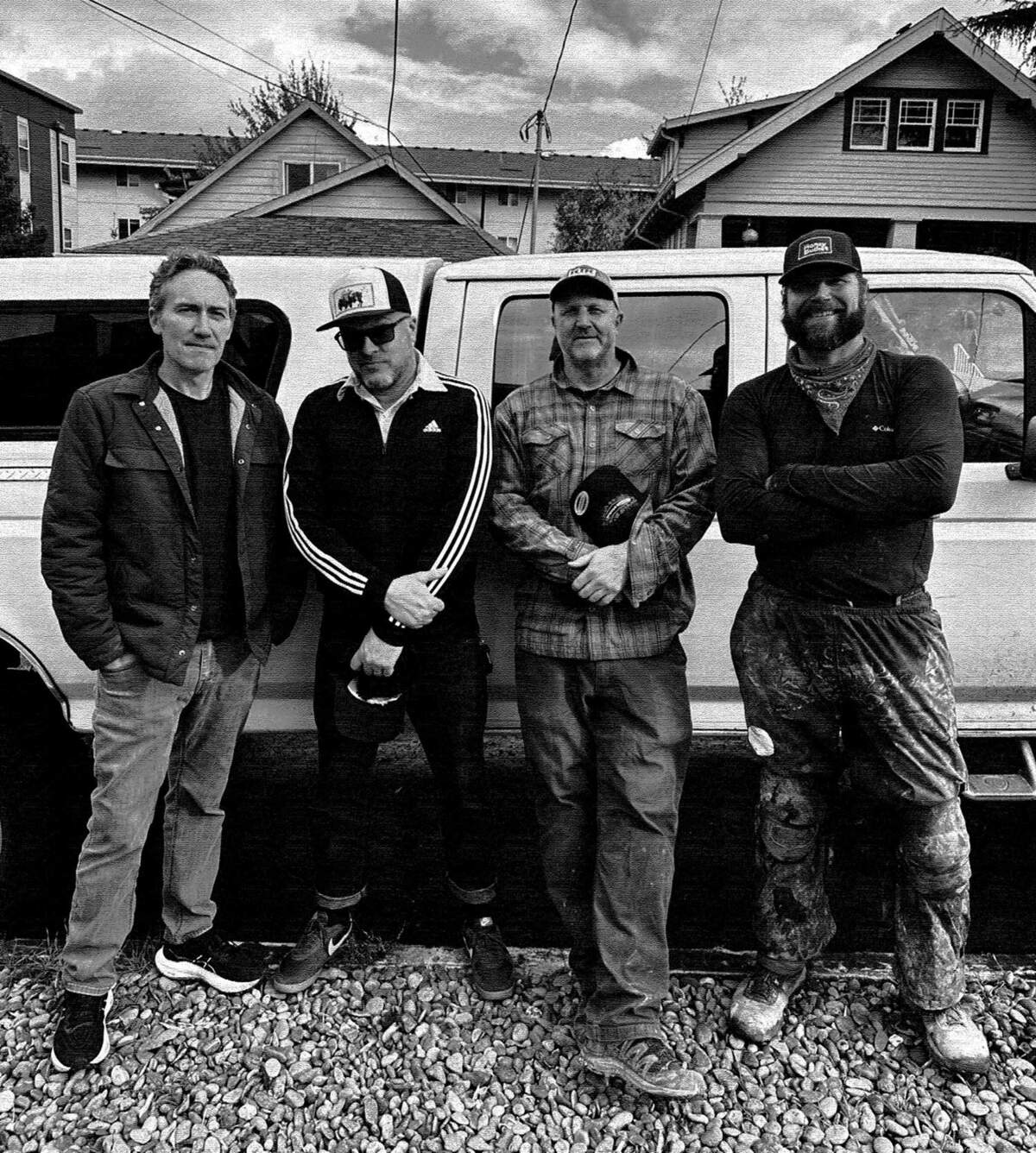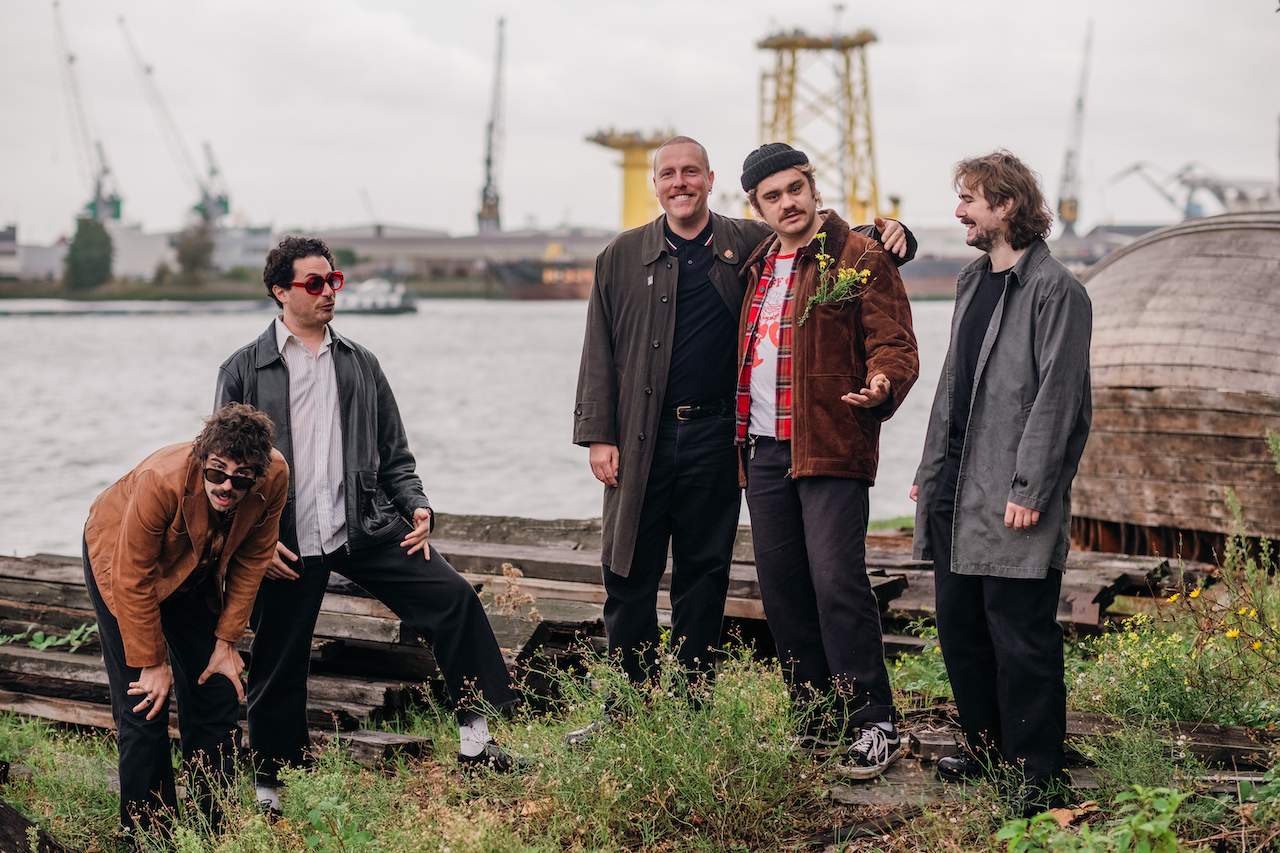Staalplaat | Interview | Geert-Jan Hobijn
Staalplaat is a legendary label formed by Geert-Jan Hobijn, mostly based around experimental releases. Staalplaat is not only a label but a life project for Hobijn and a place where he conducts a variety of other activities including concert organization, e-zine, mail order, distribution and much more.
Staalplaat has a long history of organizing events—in the 1980s it was the co-founder of a concert space called the NL Centre in Amsterdam. After being based in Amsterdam for many years, Staalplaat relocated to Berlin in 2004 and is currently based in Neukölln. Geert-Jan Hobijn explains his vision and latest involvements within Staalplaat and Staalplaat Soundsystem – a project launched in 2000. After 20 years of pushing the creative possibilities of working with Staalplaat the sound organization, Hobijn decided it was time to break free and start creating his own work instead of just presenting the work of others.
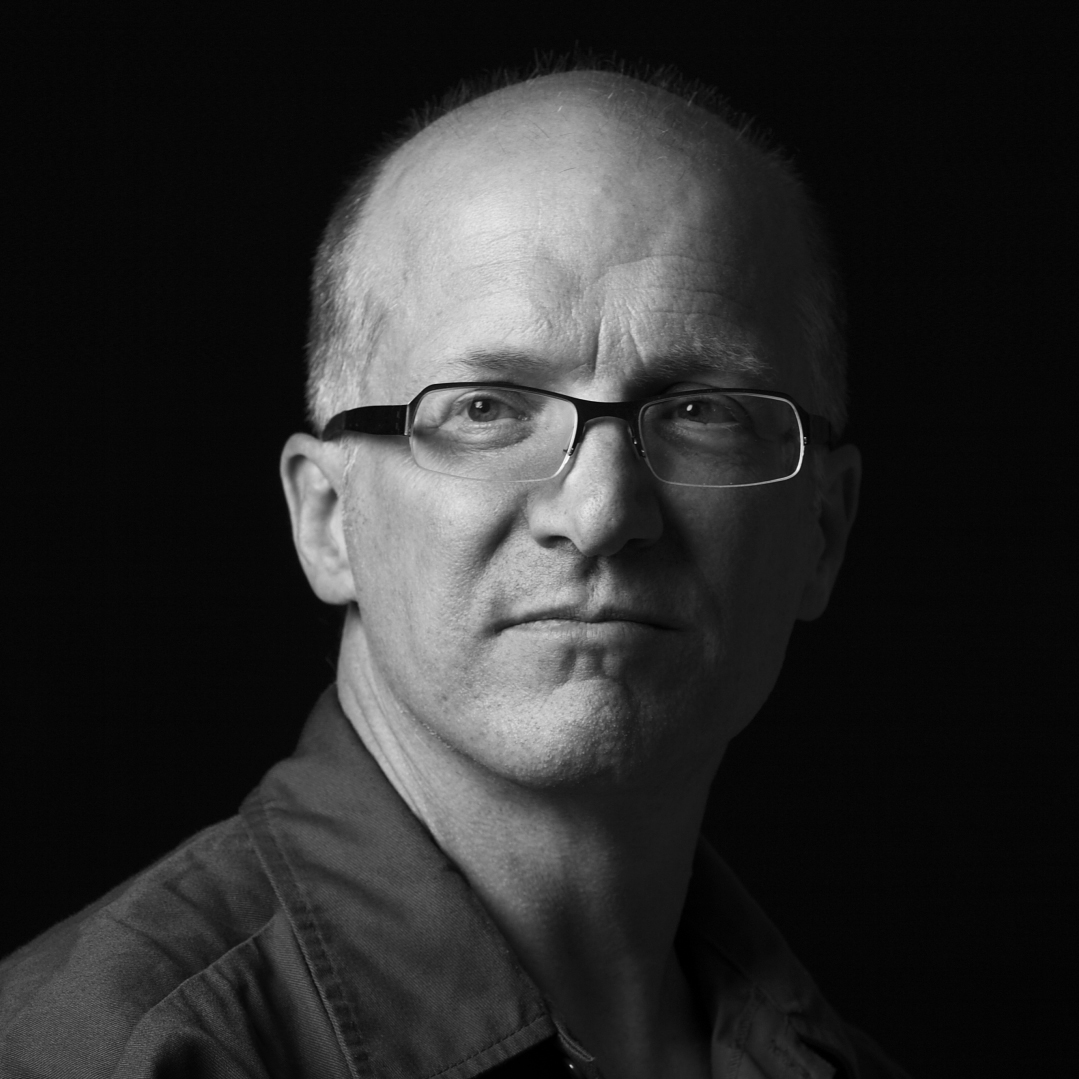
“No plan, just stay open for what is to come”
How did you first get interested in music? What kind of music did you listen to as a young teenager?
Geert-Jan Hobijn: I’m not really sure. I’m not certain that I was that interested in music back then. I had my record collection and friends made tapes for me, but that was like riding your bike, nothing special. My first records were boring, mostly old Rolling Stones with lots of scratches. I started getting interested after I started working for Staalplaat, I know that sounds strange.
Where and when did you grow up? Did the local scene have any impact on your music taste?
Born and raised in Amsterdam. The city was a great place to be in the seventies and eighties. The legendary Paradiso hall was within a walking distance! A school friend worked there, so I was always on the guest list. They organized shows for all the new wave and punk bands… and there was a big alternative scene with the squat movement. I knew a lot of interesting people in Amsterdam and had good connections to the squat world. Back then you were supposed to DIY (do it yourself). It was the eighties.
When did you decide that you wanted to start working and performing your own music?
Actually extremely late! I was 40 and had worked with my label and organizing concerts since my 20’s. It was about time to do my own thing.
“The cassette world was not commercial and shops did not take it seriously”
What was the original concept behind forming the notorious Staalplaat? What was the main reason behind it?
Original concept? I have to look that up. No concept really, we just wanted to start a music store and we had no plan and no clue. I think that is what you do when you’re young, no? We just made up the plan one night on a beach in Greece. I took it seriously, the other two stopped after a week or two. Fun fact; one of the two is now head of the Dutch secret service, no joke. It was really easy to start. I knew people and we squatted in a shop. There were many kids so bored and they all wanted to help. They actually begged me to let them work for free. The thing is that when I do things I do not really think much beforehand, but as soon as it starts I don’t stop thinking. It became clear (well to me that is), that the cassette world was not commercial and shops did not take it seriously and cassettes were considered low quality, free to do what you want and how you want to do it, in one word “the underdog”. So that sounded nice. That was where I thought we should be. So I started writing to people, labels and distributors and told them we wanted to be a cassettes shop. We had our ups and downs as is the normal with music, so don’t plan too far ahead, keep your ears open at all times. Listening to material without predigest is complicated and keeps you focused on the horizon to see what is coming. No plan, just stay open for what is to come.
The reason?
Why do you do what you do? I don’t really know… come to think of it. I don’t really want to know.
The list of your releases is truly impressive. It’s always difficult to begin with the label when nobody knows you. How was it for you and how long did it take until you became well established in the underground?
We started as a cassette shop and people told me we should release our own cassettes so that we would understand the labels we worked with. That made sense, so I made cassettes, asked local bands and then we did some concerts in a big squat (NL centrum) and I asked if I could record it and release it. The first band was Laibach, then totally unknown, only made a split cassette, first edition 50 copies hand made screen printed covers (I was good in graphics). It was sold-out in a week.
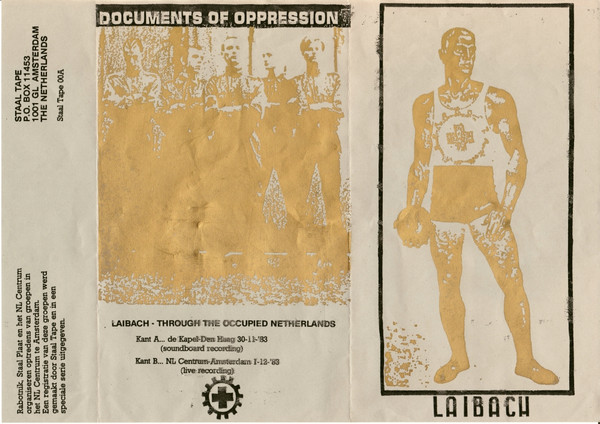
The good thing from having a shop was I had contacts with labels and distributors and our tapes looked good (well compared to the general photocopy shit covers). Other labels wanted to trade, “If you sell my cassettes in Europe, I sell your cassettes in the USA” that sort of thing. Luck, being on the right time in the right place, a good ear for sound, and we were better organized (lots of people thought being badly organized was an alternative) and like I said before, I am good at graphics. So at one point I noticed people said, “Of course we know your label, I have all your tapes”. Former Staalplaat member joined the Amsterdam STEIM studio and when they did a USA tour he put in his bio that he worked for Staalplaat, on return he told me they all wanted to talk about Staalplaat. For a long time I still assumed we were the outsider, when in fact we were not (well sort of).
Is there an album that has profoundly affected you more than others when forming the label?
I don’t have favorites or things that impress me. I did like the way some labels worked. There was an Italian label TRAX, that released cassettes with very interesting artwork and topics; The Cop Killers for example. The label was run by Vittore Baroni (and others) who was in mail art too. Remember, mail art was part of the cassette family.
Would you like to remember some of the early underground events in NL Centre in Amsterdam?
It started wonderfully. First SPK concert … They were staying in the building as guests so it was suggested to ask if they wanted to play. I was asked to help, so I got a call that they wanted to do it and would play the next day. Posters were made the same night at someone’s fathers workplace and I had to go out and help put them up. Plus I had to organize the PA. “No problem”, I said and the first thing I did was call a friend in a band and ask what is a PA? He explained and the next question was where do I get this and I got a phone number. I called and asked do you have a PA for me and he asked how many channels you need? Eeeeeh what? He was nice and asked how many band members, “Eeh just two”. “Ok, and how big is the space?”. I knew that too, “When do you need it?” “Well tomorrow”. Then he went silent for a moment and said, “Ok” and gave me the price. Now I know how strange that was, but in a way I still work that way, you don’t have to know, you have to find out, get it done. The NL center had a few people who had different input. One was a pirate radio and TV station, they had contact with Laibach and a demo tape that we liked so they were in.
How did you get the idea to record those concerts for the NL-Documentatieserie series?
Ehh, because that is the thing to do when you’re a label…
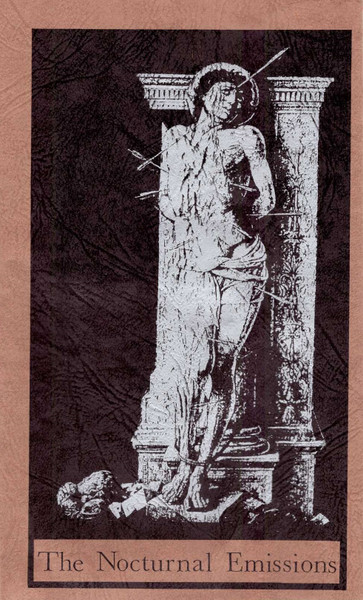
“When we do it, we do it our way”
You’re covering a wide variety of releases. How do you select your artists?
I usually listen to the material, and if it does “something” (what I can not really describe it. It’s different each time), I do it. Sometimes I listened and everybody in Staalplaat asked me to turn it off. That had no effect on me. I said I like it, and I will make a release and all of them told me that was a bad idea. That did not change my mind in any way.
Is artwork an important part of a release? Extremely important! If I could not come to an agreement with the artist (meaning we would do it my way and my way only), then I would not release it. I have been on the phone with very angry artists, who were convinced that it was their music, so it should be their cover. My idea was then to release it yourself, if you want that. When we do it, we do it our way. Sorry, no compromise. Ok, sometimes a cover did slip through and normally I hated myself for letting that happen.
Can you tell us a bit more in-depth what the releasing process is like?
It’s not very exciting because there is no process. It happens in many ways. Most of the time I go out and ask, but some were demo’s (I think 10%). You find the artist, ask him, and get the recording (or make the recording) and then start to work on the release … what sort of cover, how you make it. I usually spend a lot of time on this. When I like my idea I send it to the factory, then the release arrives. This is the best part of having a label. Sometimes it is much better than I had hoped for, but sometimes it’s not and I would rather burn it all and start over, but that really happens, (I did do it, but we live in a capitalist world so I have to be realistic) and then you drop it on the market and normally I am again surprised – products that I think are brilliant does not sell, and products that I think are “to difficult for most of them” – they sell strong. So jump and hope for the best, haha.
What was the main reason to relocate to Berlin?
A girl.
How did you like the scene there?
Well, when I arrived in 1997, it was like Amsterdam in the eighties. I was very happy, but just like Amsterdam it did not really last – but there are still places that do interesting things
At the moment you are located in Neukölln…
Yes, in a part of town that was really easy to get a place (not anymore). The city is more multicultural, well sort of for the Germany standard (a standard that does not mix very well) and now it’s the corona dance … interesting.
Do you ever feel overwhelmed by all the projects working on?
Hm, I do have this idea that when you get older you do not work so well and so fast anymore. That is disturbing, plus I think I am picking more complex projects than in the early days so there is more work … mostly more complicated.
“My ideas force me to find solutions”
Would it be possible for you to choose a few collaborations that still warm your heart?
My own work as Staalplaat Soundsystem is a format where I never work alone. My ideas force me to find solutions, ask people to build hardware and/or software as what I want or need does not exist. Sometimes we work on something for years and then use it only a few times. It’s very interesting but my need to do it differently each time does not make it easy. Even former Staalplaat people complained about this. “Can you imagine that some people had a problem with you changing everything all the time”. I haven’t even read the book about Staalplaat Soundsystem.
One of the latest releases is the double LP of the Dutch project Het Zweet, moniker of Marien Van Oers. You released the ‘Fase’ tape in 1984. Would you like to share a few more words about this double LP? The bonus material included on this reissue expands ‘Het Zweet’ from one LP to two, the second LP consisting entirely of previously unreleased material.
I like returning to older projects, but not as, “I am writing my memoirs or the Staalplaat history”. I noticed some people are spending a lot of time looking back. That is stupid. I feel sorry for them. You do not know what is coming next, so why would you be picking up on something and reshaping it … putting it back in the system to see how it works is very interesting. Het Zweet was forgotten and Marien made great work. It’s sad he did not get the recognition when he was here. In a way I blame myself for not paying attention, but there were times we put out three new CD’s every month. An absurd production. No wonder I was distracted. In the music world people disappear very easily. One of the darker sides of the music scene.
It is trance inducing!
Yes, I agree.
How did you first get in touch with Bryn Jones?
Well, he called us if we wanted to do a CD (in a time when that was considered special, and expensive), so I said, “Yes, when you want to do this”. “Now!”, he replied. He had a master tape ready for a company that went under. So that was our first release: Muslimgauze – ‘Iran’. Then he worked with label Extreme and there was the story that Extreme remixed his music and changed the text and titles. So then I called him and asked if that was true. It was! I told him that this is not how it should be and that as soon as he was out of that contract, he should come to us. We would not change his work. One year later he called me if he could come and well … you know how it ended.
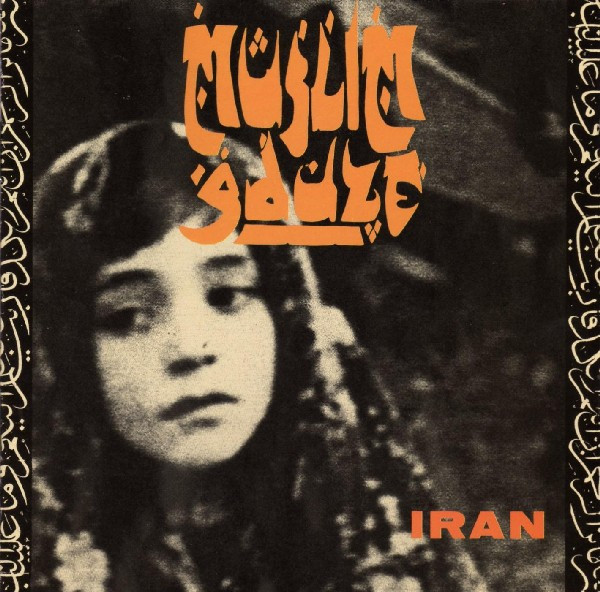
You are releasing his 1996 recordings, ‘Muhammadunize’.
I am working my way through back catalogue and some unreleased material.
What was he like?
Bryn was great. I liked him … he was a bit nerdy, friendly, we talked a lot on the phone. He was at my house a few times and I went to his house. I think people projected things on him … a big bearded man was what they expected. He was shy. It took two years til we had a good relationship where there was trust and respect. I could criticize his work without him being insulted for he knew that I think he was brilliant so I miss him.
I would also like to mention Bells / Cicadas – nula.cc and Radboud Mens. Highly recommended!
These are two releases where I asked the artists with nula.cc. I heard Cicadas and suggested making a 7″. I think he was very surprised by my request, and I am very curious how it will do, I think it’s beautiful or I would not do it, but if the public will see it the same way … let’s see.
The Radboud Mens is again the return to the 90 clicks music. Not sure if we’re too early with that, don’t care. It’s a great record, far better than most of the others. For me it’s out there with Ikeda. But what do you expect? You must love what you release or find another job.
Lately I’ve been also enjoying ‘Noisephony of Lawn Mowers’ by Taavi Suisalu. Would you like to highlight some other releases from the past year or two?
I have really returned to the label because of corona. All projects were canceled, “Ok no problem, I can do something else”, but the label was sleeping for some time like the Staalplaat Soundsystem is sleeping now. So there are not really other releases or we have to look at old stuff (not a good plan). I asked Taavi Suisalu if I could do ‘Noisephony of Lawn Mowers’ and he did his best to explain that other work would be a much better idea.
What are some future plans for your label?
More sound art! I am working with Jens Brand on a record with only motor driven ratchets so a 12″ with acoustic white noise. I think the editions should not be that big, but we have made high resolution recordings and I want the best pressing and a direct metal master, so the best and most expensive. Money is there to spend.
What was the original concept behind forming Staalplaat Soundsystem?
Basically to work with all sorts of sound, so personally physical experience … public experience composes your surroundings, like cars, trains, machines. I want to compose birds, but for that I have to create AI. And then I need data and have to work with universities, not sure if I am making it too complicated, but if I want to do it, it has to be real. No nice art story that is hollow when you really look at it.
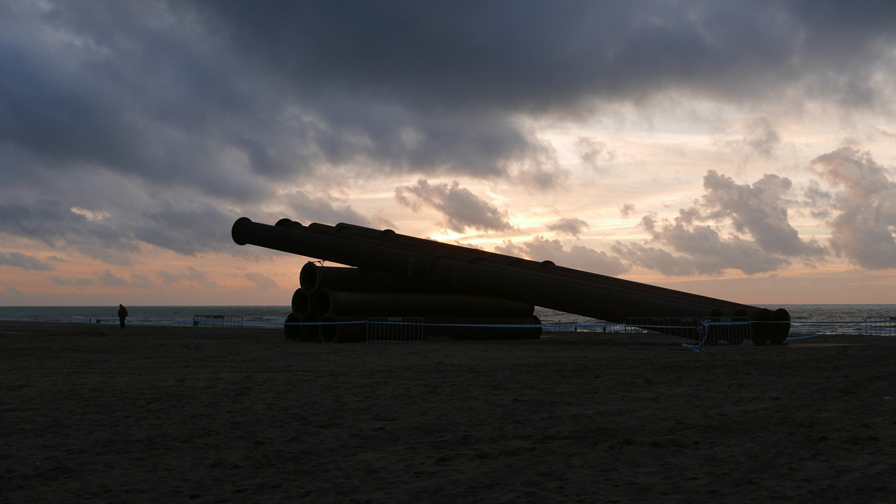
“Not being very serious about everything is fundamental”
Would you say that “dada” is an influence when it comes to your installation?
Yes and fluxus, but others pointed that out to me. I don’t think that way, but when I read a review, I think they have a point. I once wrote to Willem de Ridder (Dutch fluxus artist) and told him my work was considered fluxus, so “Hello daddy”. He answered, “Yes my son”. Not being very serious about everything is fundamental. And it’s disappearing. Everything is more and more serious, puritan, dogmatic fundamentalist (on both sides).
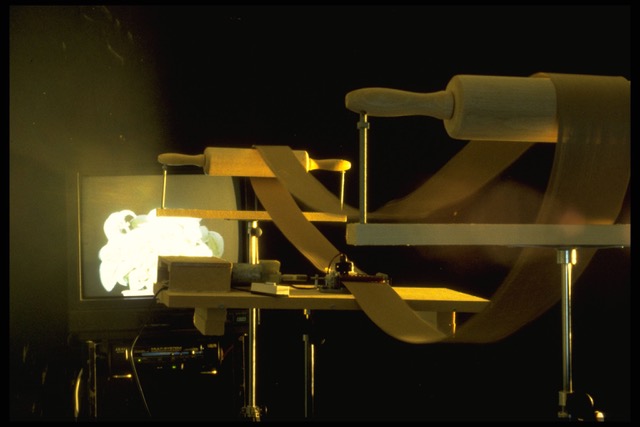
You are one of the most active people around. What was the breaking point for you to start Staalplaat Soundsystem?
Oops, it was a joke I made and they took it seriously. The name came from the Wire Soundsystem concert in Berlin and we did not like their set at all. “If that works, we should start the Staalplaat Soundsystem”. We laughed, took another beer and forgot about it. Then we’re working on a festival in France. The opening of a new house on 30 December 1999, a big festival. So I got a phone call from the curator in stress, “We need an extra band name for the program”. I joked and said, “Staalplaat Soundsystem?”. Yes, that is perfect! Ah wait, don’t you want to know what they do? No! And she hung up. So I had my first gig and not a clue what I was supposed to do, never played any instrument, the only good thing was I had 6 months to come up with a plan. I prepared this when I proposed to do a concert with 9 refrigerators and got accepted. The fear, panic and excitement.
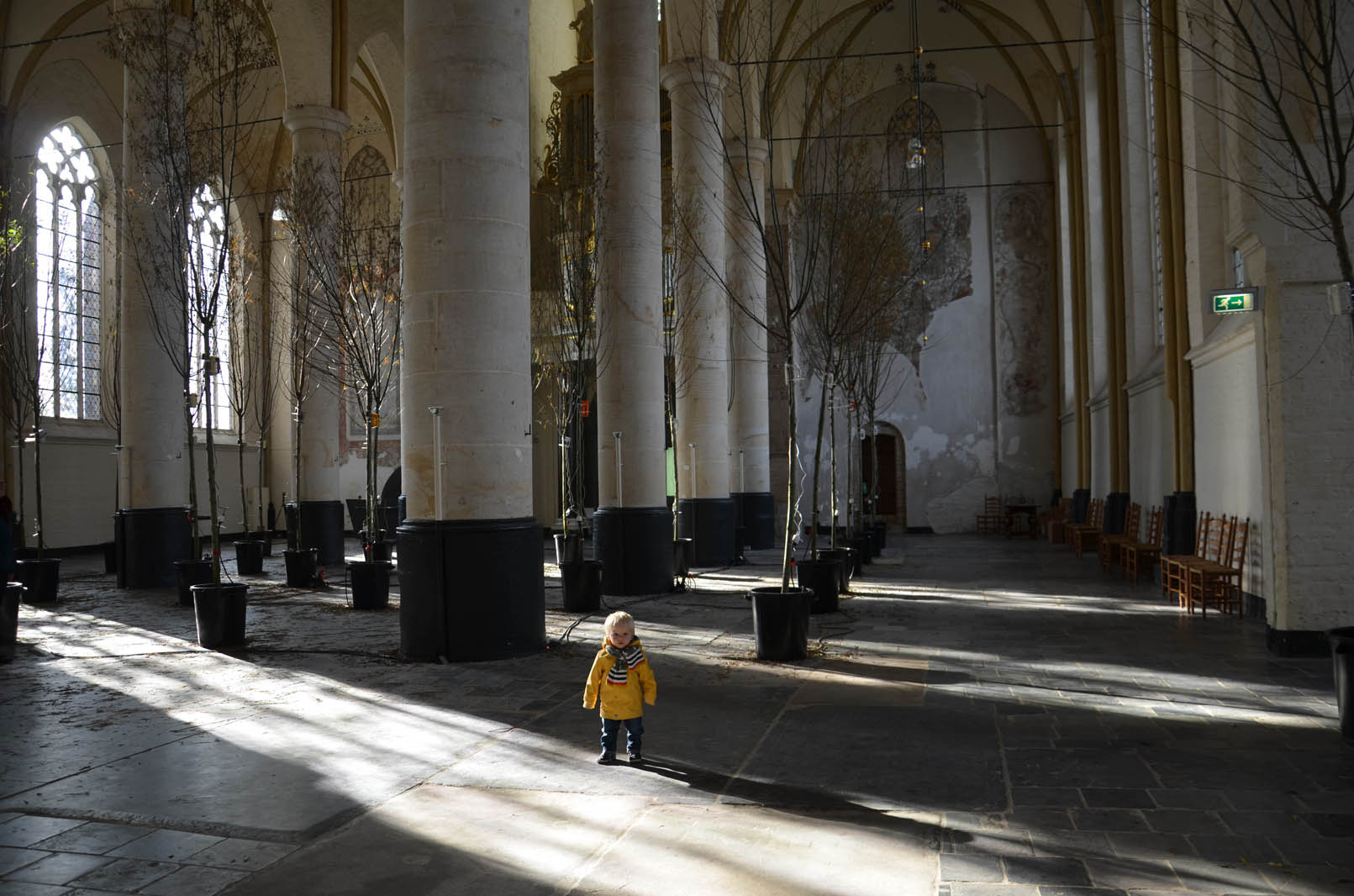
Where does your never ending curiosity come from?
Mmm, do I really want to know? Don’t think so. That is just who I am, I don’t think that comes from something. I like digging. And I do not believe in the creation theory. I believe in evolution. So if the first version sucks, that is not a problem you learn, improve and go in again. I think that is natural, I can not understand how some people repeat one concept again and again.
After reading a wonderful J & T interview, you talked about pre-music and its origin. Today the sound of the machines is much louder in our society than the sounds of nature. Is that the main inspiration for your project?
It’s one of them: the idea to compose it, to control it, to change the perspective of myself and the listener. Like the 9 old refrigerators we did in a small east German town in 1999. It was a concert where we used the humm of the machines, normally on a CD this would be an electronic concert. But the public, families, kids elderly were all smiling because they knew the sound.
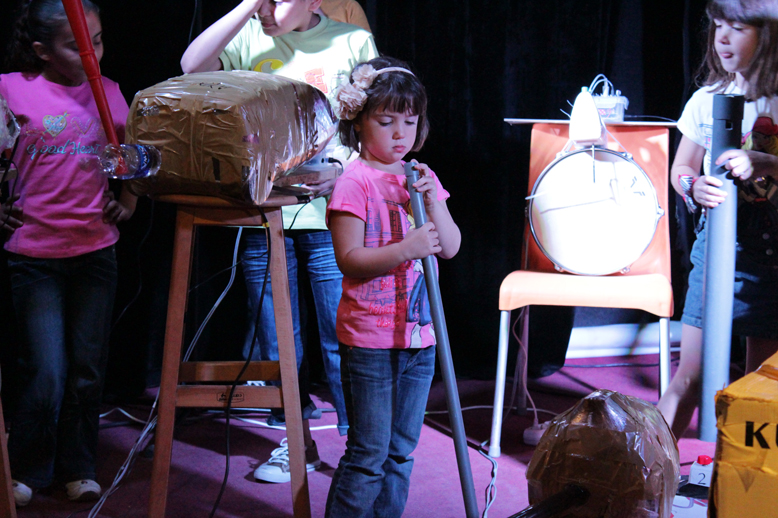
I realized that perspective opened them up to listen to something they would normally never listen to. Not only that, they were having a good time. I worked for a “music elite” at Staalplaat but it’s possible to do the same for any public with no compromise whatsoever. We all know noise, if you use that, it gets very interesting. Ok sometimes it goes all wrong and people get very aggressive, like that concert with 9 sirens in a small Belgium town, where people started screaming in your face and the curator panics, asking to play at a lower volume (we did not), but it was shorter.
It’s really ironic that a lot of artists want to exclusively please their audience. It makes you question their “artistic” purpose?
Well if you want to please, your audience will notice it. Like with the teacher at school, you lose your respect. I want to show them something and they don’t have to like it. I just hope they will listen anyway. I had people say, “I did not like it but it was interesting” … something they have not heard before. McDonald’s music is not what I want to create.
Could you share a bit more insight behind the installations consisting of everyday electronic objects.
I personally have lost interest (it can become a trick), but it works great when you do kids workshops building music instruments from old everyday electronic objects. And it’s even better when you show them that we can go on stage with them and do a concert, not just any concert, but a very good concert. In Greece people like Mika Vanio were there and were surprised how good it sounded. And the kids get applause. So you show them there is a way of looking at things that kids have. This object is an instrument that finds its sound. You can do this. They trust you and are dead serious when they go on stage. So for me it’s a tool to show them creative thinking. That it’s in them, all you have to do is find it. The older we get, the more stuck we get. Our vision narrows. For a child an electric power plug can be a spaceship, and if you look, you see there right. That is (in a way) similar to fluxus and dada and it does not have to be perfect.
Thank you. Last word is yours.
Sound: the final frontier. These are the voyages of the Staalplaat Soundsystem: To boldly go where no man has gone before! Fascinating.
Klemen Breznikar
Staalplaat label Bandcamp
Staalplaat Soundsystem Official Website

